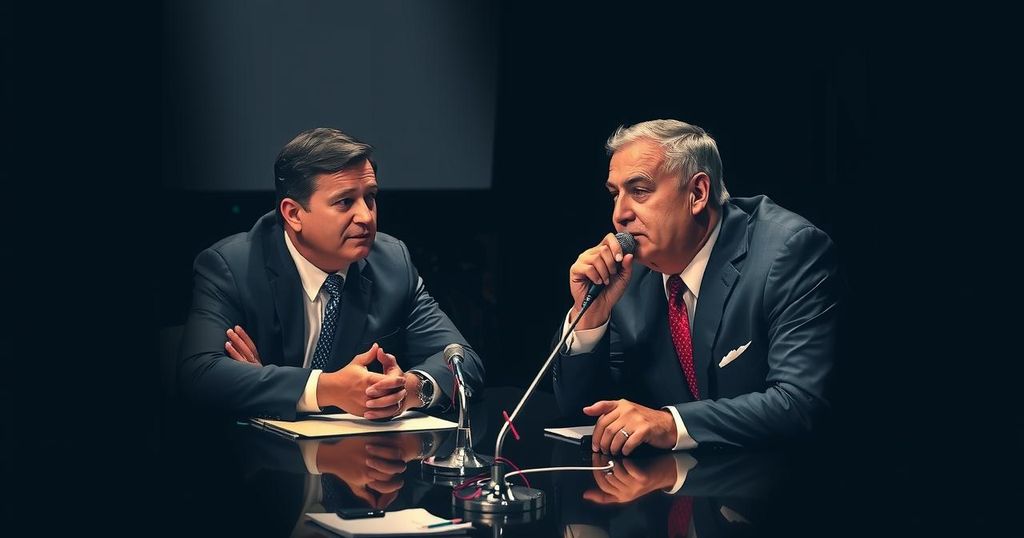Election Officials Challenge Misinformation on X Amidst Musk’s Influence

Election officials are confronting Elon Musk over misinformation on elections shared through his platform X, struggling to gain visibility for their corrections. Musk’s significant influence often overshadows the responses from election officials, complicating their efforts to maintain electoral integrity. Despite these challenges, some officials have successfully countered his claims, exemplifying resilience in the face of misinformation.
Election officials are increasingly engaging with Elon Musk on his platform X to counter misinformation regarding elections, but their efforts are significantly overshadowed by Musk’s vast following of 200 million users. Recently, Henrico County registrar Mark Coakley found himself reacting to a misleading post by Musk, which claimed that fraudulent votes had been discovered in his county from the 2020 elections. Despite the registrar’s prompt rebuttal on X, which received significantly fewer views than Musk’s original post (27.7 million views), the challenge remains daunting as election officials strive to maintain electoral integrity amidst a digital landscape where falsehoods often gain more traction. In another instance, Musk promoted a post asserting that thousands of voters had registered at the same address, prompting a response from a Philadelphia County Commissioner who attempted to clarify the misinformation. However, similar to Coakley’s experience, the official’s voice was drowned out by Musk’s substantial audience. Even Republican officials have attempted to engage Musk on these issues, with Maricopa County GOP recorder Stephen Richer suggesting his office as a source for accurate information on Arizona elections. Disinformation researcher Sam Woolley has noted that Musk has wielded his ownership of X to foster narratives that benefit his political allies, thereby undermining trust in the democratic process. This dynamic complicates the work of election officials, who must allocate valuable resources to counter false narratives instead of focusing on their primary responsibilities. On a positive note, Michigan Secretary of State Jocelyn Benson successfully challenged Musk’s assertions about voter registration in her state, illustrating that, while the challenge is considerable, some officials can effectively utilize the platform to correct misinformation. Benson’s response garnered more views than Musk’s original claim, exemplifying that truth can, at times, prevail in the realm of social media.
The rise of misinformation on social media platforms, particularly X (formerly Twitter), has contributed to widespread confusion and skepticism regarding electoral processes and results. Recently, notable interactions have surfaced between high-profile individuals, such as Elon Musk, and election officials, emphasizing the escalating pressure on the latter to refute claims disseminated by influential figures. The imbalance between the enormous audience that individuals like Musk command and the limited reach of election officials’ responses exacerbates the challenge of maintaining electoral integrity in an era defined by rapid information dissemination and often, misinformation.
In conclusion, the relentless tide of misinformation spread by individuals with significant social media influence, such as Elon Musk, poses serious challenges to election officials tasked with maintaining the integrity of the electoral process. Despite the inherent disadvantages in visibility and engagement, some officials, like Jocelyn Benson, have succeeded in effectively combating these false narratives. Nevertheless, the broader issue remains, with election officials burdened by the need to address misinformation, detracting from their primary responsibilities associated with conducting fair and transparent elections.
Original Source: abcnews.go.com







